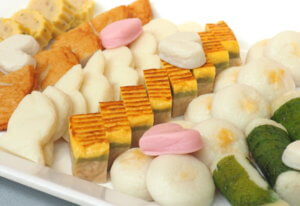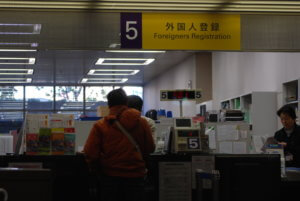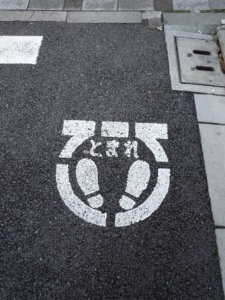What is "Kamaboko"? Explaining its history and its typical manufacturer, Suzuhiro
What is Kamaboko? Blessed with abundant fish in Sagami Bay and water from the Hakone mountains, it is said that kamaboko (fish cake) was already being made in Odawara around 1558, which was an important commercial and transport site at that time. This kamaboko later became the perfected Odawara kamaboko that we have today. While […]
Decals for Four Types of Drivers in Japan
Decals for Four Types of Drivers Based on Japan’s Traffic Law, four types of drivers are obliged to indicate their status by attaching a decal to their vehicle. These are new permit holders (used during the first year after obtaining their license); drivers with hearing disabilities; drivers with physical handicaps; and seniors aged 70 and […]
Japan -- a Nation of Vending Machines!
Japan’s First Sliced Apple Vending Machine Inside the Kasumigaseki subway station in the very center of Tokyo, a one-of-a-kind vending machines selling sliced apples catches the eye of passers-by. “We want people to be able to enjoy eating them as a breakfast substitute, or for snacks,” says the operator. The apples, cut into easy-to-eat sections, […]
Japanese people are good at "Reading the Atmosphere"
Japanese people in general tend to be somewhat reserved and prefer to avoid drawing attention to themselves. This appears to also be the case for those who just reached 20, Japan's age of adulthood. A recent poll by research firm MACROMILL found that 90 percent of the respondents believed it important to “read the atmosphere” […]
What is "Meishi"?
名刺 めいし “me-i-shi” Meishi (business cards) are indispensable for almost all kinds of business in Japan. Normally when people meet in a business context for the first time, they start by exchanging their meishi and then move on to the main subject. Nowadays some use meishi for their private affairs; personal cards look more informal […]
What is 5S in the Japanese Workplace? (2): "Seiton"
5S in the Japanese Workplace (2)— Seiton at the Ready Helping Suppliers Get the Edge 5S, often explained as Seiri (整理)= sorting, Seiton(整頓) = organizing, Seiso(清掃) = cleaning, Seiketsu(清潔) = sanitizing and Shitsuke(躾) = sustaining, is a workplace methodology introduced by Japanese businesses. 5S is based on fundamental Japanese “common sense,” which is one reason why they […]
Tomica's History, Japanese car toy
Tomica Minicar Appearing in 1970, Tomica greeted its 50th anniversary in 2020. The exquisitely-detailed, reasonably-priced, palm-sized Tomica minicars have been a long seller endeared by three generations of people with many of them being enthusiastic fans. With a total of more than 538 million minicars already sold, Tomica has been fascinating both children and adults alike. So, […]
“Problematic Permanent Residency in Japan”
Foster togetherness or Xenophobia? : Problematic Permanent Residency in Japan As to whether to grant permanent resident foreigners the right to vote in local elections has become a major issue, foreigners with permanent resident status are now drawing attention. If the right to vote is granted, it will be given to a total of 910,000 […]
Foreigners Working in Japanese Companies
Speaking English Is Now Prerequisite on Business in Japan “Money talks,” they say. In Japan nowadays, many businesspeople believe money speaks English. Some prominent Japanese firms are adopting English as their official language, most notably Rakuten, an online retail service company, and Fast Retailing, the parent company of the popular Uniqlo chain of clothing stores. […]
A Go-by-the-book Society in Japan
Some regard Japanese people as being rather inflexible. A major reason for this, it’s been said, is an educational system that does not encourage free thinking but it could also be argued that Japanese even from long ago had a penchant for seeking the safest and surest way of doing things. That may be the […]












